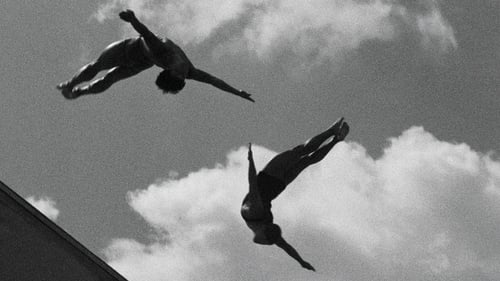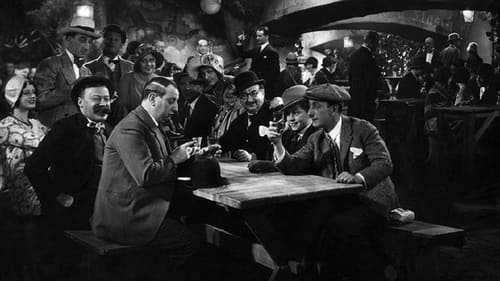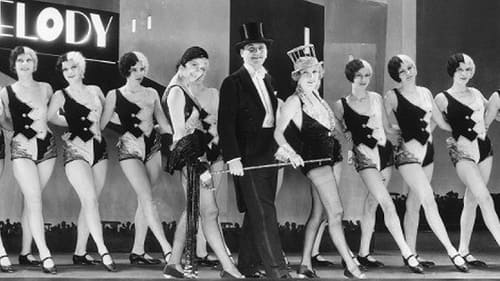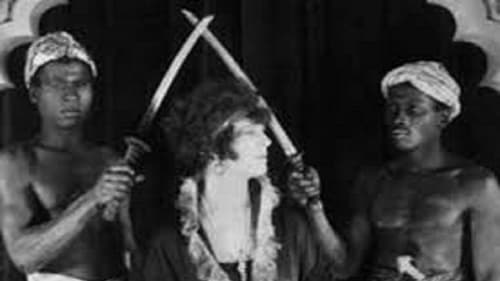Paul Holzki
出生 : 1887-09-26, Saadan (East Prussia, now Poland)
死亡 : 1960-01-26
略歴
Paul Holzki (28 September 1887 in Saadan, Ortelsburg district - 26 January 1960) was a German cinematographer. He worked with Leni Riefenstahl on the 1938 documentary Olympia.

Cinematography
The First part of Olympia, a documentary about the 1936 Olympic games in Berlin by German Director Leni Riefenstahl. The film played in theaters in 1938 and again in 1952 after the fall of the Nazi Regime.

Cinematography
The Second part of Olympia, a documentary about the 1936 Olympic games in Berlin by German Director Leni Riefenstahl. The film played in theaters in 1938 and again in 1952 after the fall of the Nazi Regime.

Sound
The young married couple Sigvard and Isabella Löfgren are constantly being sought by different companies where they are trading on the bill. Sigvard is a traveling salesman and Isabella works as a secretary at a theatre agency seeking artists for a revue.

Camera Operator
Steffi is in love with the unemployed musician Pepi. Still, her father the musical instrument retailer, Ignaz Korn, wants her to marry one of his card playing buddies, the butcher Burgstaller. When the typesetter, Cäsar Grün, purposely misprints a winning lottery number in the newspaper, Korn and Burgstaller, thinking they have won, pay the drinks for everybody in the Bock Café and then give away their businesses.

Cinematography
An impression of the state of the world in 1929, contrasting similarities and differences in religion, customs, art and entertainment from all over the world. The film is constructed like a symphony.

Cinematography
Rudolf Nelson and the Weintraub Syncoptators lead thru a short musical revue, featuring eccentric dancers, singers, and a small chorus-line.

Director of Photography
Die elf Teufel / The Eleven Devils was made in Berlin in the summer of 1927, in the last throes of the silent movie era. But Die elf Teufel strikes one today as a prophetic film. One of its early captions is "Football, the sport of the century ". We are shown a ball bathed in light like some sacred relic, and observe how, even in those early days, fans on the terraces wouldn't shy away from using their fists.

Director of Photography

Director of Photography

Director of Photography

Director of Photography

Director of Photography

Cinematography
Malatti's father has unexpectedly survived the fall from the train and now vows to take cruel revenge on McAllan. In Lhasa, the old capital of Tibet, seat of the Dalai Lama and at the same time a "forbidden city" for all foreigners, there is another dramatic encounter between the engineer and Badhama. In a dark dungeon, he thinks he recognizes McAllan and tries to stab the man he holds responsible for all the misfortune. He does not realize who he is stabbing, killing his own daughter in the process. The Dalai Lama's servants arrest Badhama and throw him in the dungeon. Malatti's father is sentenced to death, while McAllan sees the light of day again and is released.

Cinematography
The old man and McAllan then got into a physical altercation on the roof of a train that was moving at full speed, in which Malatti's father fell. McAllan assumes that his adversary died in the process. When a gang of rogue robbers board the train, McAllan's life doesn't seem worth a damn anymore. But then, almost out of nowhere, his faithful servant Lubzang appears and saves his master's life at the last moment. Malatti, also on board, falls into the clutches of the gang and is sent to Tibet by the sinister fellowsabducted to be offered as a sacrifice to the goddess Bhawani. However, a kind-hearted member of the gang of robbers takes pity on her and helps the exotic beauty to escape. A little later, Malatti meets Lubzang, who has meanwhile broken away from his master McAllan. He takes her with him.

Cinematography
In Calcutta, McAllan meets the beautiful Indian woman Malatti, with whom he immediately falls in love. The engineer quickly neglects his professional obligations and follows her. After some complications, the two of them finally get closer at her home, even if Malatti's father Badhama rejects this connection. Badhama only agrees to the planned marriage when he learns how wealthy this white man must be. After some time, McAllan returns to his large construction site, where things are going haywire. Many workers die in an explosion, and McAllan is now liable with his fortune. As a result, the engineer, who became impoverished overnight, suddenly becomes uninteresting for Malatti's father as a son-in-law, especially since with a solvent Japanese man who offers a lot of money for his daughter's hand,

Director of Photography
The American engineer McAllan is appointed site manager for a major project in Asia. He is to oversee the branch line of the railway line from Calcutta to Beijing. One day, the railway company in question called him to Calcutta for an interview: they were planning to stop running the branch line for cost reasons. However, McAllan is passionate about the project and uses all his powers of persuasion not to just call off construction. In fact, the construction work will continue, and the engineer is even willing to vouch for it with his private fortune.

Camera Operator

Cinematography
Plot unknown

Cinematography







